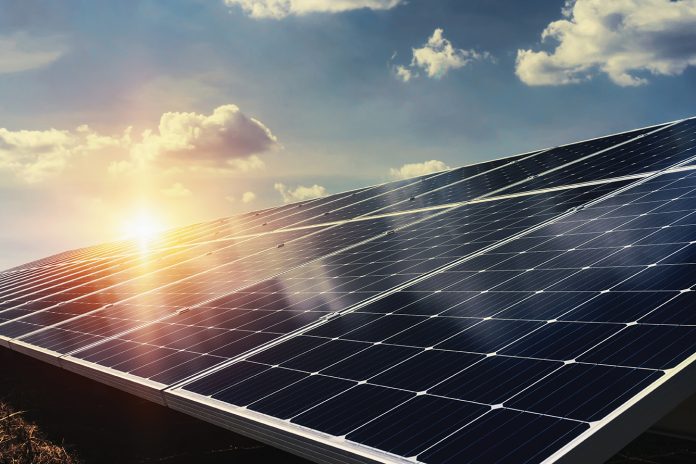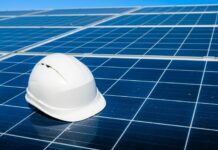
Now that it has become clear that the Texas legislature lacks the political will to enact new policies that are likely to stabilize Texas’s highly-unstable power grid, many Texans with the financial means to do so will be looking for the best way to fortify their homes against the inevitably increasing frequency of future blackouts to come.
Beginning shortly after February’s big freeze and blackout event, my wife Terri and I have done research and taken bids on both natural gas/propane backup generators and a rooftop solar/backup battery system to protect our own home. I thought it might be useful to readers to share what we have learned from our experiences.
Where home solar is concerned, I will do this without naming any company names other than Tesla, since Tesla is the only company whose process has not felt like a scam to us.
We have a fairly large house – it’s about 3800 square feet. When we contacted Tesla directly in order to avoid the teeming masses of solar retail vendors that seem to have cornered most of the market in North Texas right now, Tesla presented us with a plan to power our whole home with about 25 low-profile, high-efficiency panels and 4 Tesla Powerwall batteries mounted on the wall of our garage for a grand total cost of roughly $46k. You get about an $8k federal tax credit that you end up signing over to Tesla to reduce the principal, and it then comes to roughly $38k.
Tesla will finance it for 5 years for a total monthly payment of around $800 or for 10 years at about $500 per month. The estimate is that it will cut our monthly power bill by about $180, so out of pocket net for 5 years is $620 or so per month, or $320 per month over 10 years.
Very affordable considering it’s all fully warranted – parts and service – and you fully own the system once it’s paid for.
In an event like we had in February, when the panels are covered with ice and snow and thus not generating much power at all, Tesla says the 4 power walls would give us 4-5 days of whole home power if we conserve a little. Pretty strong.
But when you get one of these retailers out to your home, as we did with 3 early on, it’s like sitting through an old Amway or whole life insurance presentation many of us endured back in the 1980s. Some 20-something kid (not that there’s anything wrong with 20-something kids who are just trying to make a buck) who knows literally nothing about any of it other than what he has most probably learned in a half-day seminar shows up armed with an iPad, from which he reads a canned presentation and assures you that it’s all just as great as Tesla and tells you why his company is the bestest solar company on earth and presents you with a plan that would cover your entire roof with about 80 panels, which would charge only 2 Tesla power wall batteries (or the LG brand, which are comparable), and hey, you get a delightful “Zero interest” loan for 25 years at about $460 bucks per month.
25 years. Not kidding. It’s basically a 2nd mortgage on your home. They will do shorter term loans, but the obvious strategy here is to present it to you for that long term in order to make the monthly payment palatable for the middle class to lower-middle class homeowners who make up the preponderance of their customer base.
Many of you have no doubt seen those Facebook ads claiming that you can finance your solar power system at “ZERO percent interest” under a special federal program. You know how they manage to charge you “Zero percent” over 25 years? The 3rd-party finance company they all appear to use marks up the principal cost of the system by 100-150 percent up front (in our experience with 3 company bids), and then calculates your monthly payment from there. Of the 3 companies we took bids from, the principal they proposed for us to finance over 25 years ranged from $120k to more than $150k.
That’s not a typo. When we asked what the cost was if we were to just buy the system outright, 2 of the 3 company reps we dealt with had no earthly idea – or claimed not to, anyway – and the 3rd kid tells us it’s, um, lessee here…. it’s about $60k.
So, that means the “finance company” they’re using inflated the principal by about 100-150% so they could claim to be giving you a “Zero percent” loan. How they’re able to get away with this without being in violation of some state or federal law is a mystery.
Oh, and here’s the best part: One of the kids said that those 2 batteries they want to install in our garage would only provide us 9-11 hours of power in an event like we had in February. The other 2 kids claimed they had no idea, and frankly we believed them. It was extremely easy to believe that they knew nothing about it, trust me. Regardless, that is obviously completely inadequate.
Meanwhile, a whole-home natural gas generator for our home would cost about $13k, but that’s 3k higher than normal due to some special considerations we’d have to pay for due to the way our house is laid out. Otherwise, it would have been about $9600.
The catch for us, though, is that we don’t have natural gas service, and would have to use propane. We were told that the Generac generator we would need would consume a full 500-gallon propane tank in about 5 to 7 days, which would have gotten us through the February event, but not through anything longer term than that.
So it’s a huge difference in price. However, we’ve talked to a couple of good realtors who tell us that having a home solar system really does increase the value of your home, in some cases by as much as 3 to 5 percent. Natural gas generators don’t bring a similar premium. Plus, you have the noise factor to consider. Natural gas generators are noisy, while solar is obviously silent. At our home, we also have specific siting issues for a propane generator that are giving us some severe heartburn. Every homeowner will have to work through their own decisions on these and other factors.
Bottom line: My best advice – in case anyone cares – is to do the natural gas generator if you have natural gas supply at your home because that natural gas supply is going to keep coming unless we have a nuclear war or major solar flare event, in which case we got bigger problems. If you’re on propane like we are, the choice becomes more difficult given that our local distributors were unable to meet demand during the February event.
But if you do solar, deal directly with Tesla because these retail operations basically all feel like a bit of a scam to us.
Terri and I still haven’t made a final decision, but it has come down to either going with Tesla’s bid or a propane-based generator. We wish you all the best of luck in your own search for protection against the instability of the Texas power grid, which our policymakers in Austin are apparently going to allow to become a permanent, ever-increasing problem in our lives.
















